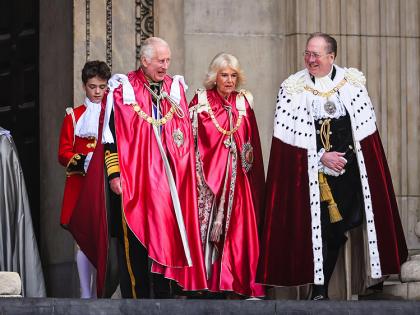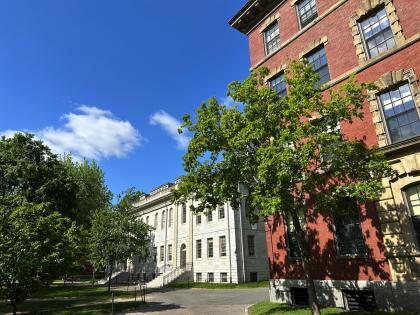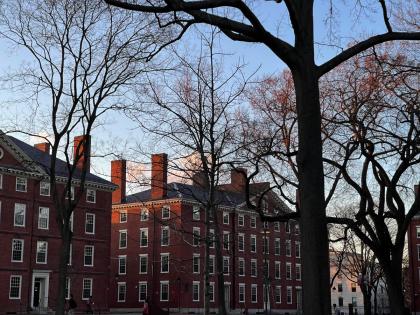Artists and scholarly analysts of their works inhabit different realms of a co-dependent relationship. Peabody research professor of music Lewis Lockwood and the Juilliard String Quartet mine this connection in Inside Beethoven’s Quartets: History, Performance, Interpretation (Harvard University Press, $35), a book-plus-CD collaboration. How they do so may be especially informative as the University considers the place of the arts and creativity within Harvard’s curriculum. Lockwood’s preface begins with a borrowing from a different genre—Italo Calvino’s Invisible Cities.
Following Calvino, I imagine the world of classical music in our time as an invisible city whose present contains its past—a past inscribed on it “like the lines of a hand” that, as the image suggests, imply its history and foretell its future. My imagined inhabitants are musical citizens of many kinds: performers of vocal and instrumental music, composers, scholars, critics, teachers, students, concertgoers, music lovers, and casual listeners. Many have more than one strong interest and enjoy more than one kind of music. Two groups among them, the performers and the scholars, typically live in different neighborhoods, teach in different kinds of schools, mostly address different publics, and rarely communicate with each other.
The performers spend their days engaged in playing or singing, rehearsing, preparing concerts, perfecting their techniques, developing their interpretations, making recordings, teaching their students, living the active lives of professional music-makers. Their habitats are practice rooms, studios, and concert halls.…[T]hey rarely have time to pursue historical or critical issues behind the works. Their job is to bring music to life in performance and to interpret it well. They are deeply engaged in the practical tasks of preparing performances down to the last detail.
The scholars spend their days thinking, reading, listening, writing essays or books, teaching classes or seminars, preparing lectures, studying in libraries or in their private studies, living the contemplative lives of historians or critics. A few scholars work regularly with performers and many are themselves skilled amateur performers who understand the art and craft of music-making. In fact many members of the two groups know more about each other and their domains than might generally be supposed, though their paths rarely cross in public.
Still, if the history of this invisible city is indeed inscribed upon it, that history can be discovered in its concert halls, its schools of music, its practice rooms, its university and high-school classrooms, its music libraries, and its lecture halls. It is imprinted on the memories, imaginations, hearts, voices, and hands of all as denizens of one city.
This book attempts to link musical scholarship and performance.







